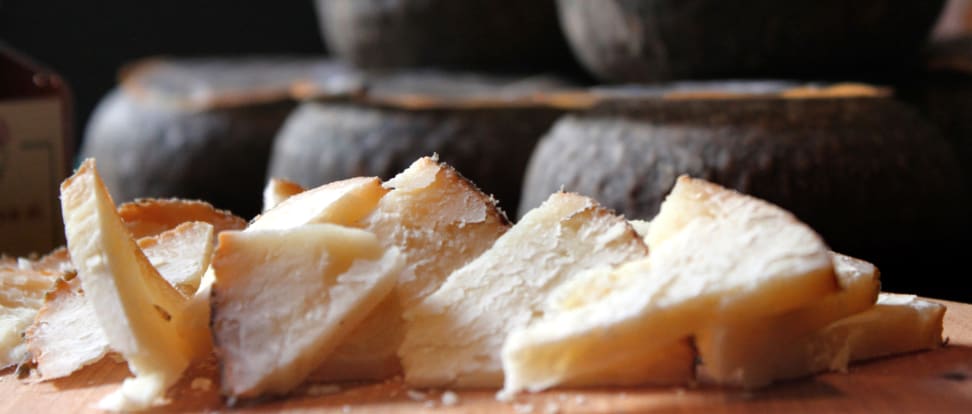Mad Scientists Create Real Cheese Even Vegans Can Eat
Vegans, your long fake-cheese nightmare may soon be at an end.
 Credit:
Credit:
Products are chosen independently by our editors. Purchases made through our links may earn us a commission.
Consider this: For the energy it takes to raise one U.S.-bred cow, you can get up to ten-times as many calories by growing grain. But as inefficient as raising livestock is, and as queasy as commercial cattle production methods may make you, you can't deny that the products we get from animals are culinarily indispensable and utterly (udderly?) delicious.
That's why a group of volunteer scientists out of San Francisco have started an Indiegogo campaign to create a vegan cheese that's indistinguishable from cow cheese.
Normally, vegan cheeses are derived from tapioca flour, vegetable glycerin, or nuts. They also tend to be rather unsatisfying, to put it charitably. That's because all current vegan cheeses lack a crucial ingredient: the animal proteins found in milk.
These biohackers think they have the solution: They're going to create milk protein without ever involving an actual animal. To pull it off, they plan to take the DNA sequences that dictate milk protein production in cows, build them from the ground up in a lab, and place the synthetic DNA into yeast.
Once the artificial milk protein has been developed, it'll be mixed with sugar, water, and vegetable oil. The end product will be milk, or something very much like it. And from that "milk," you can grow cheese that looks, tastes, and melts more or less like the real thing.
That's crazy enough, but here's the kicker: At least some of the DNA sequences may be human. That's right: Vegan cheese is people! It might seem a little disconcerting to the average diner, but the scientists argue human DNA provides a lot benefits, including improved allergy resistance.
The whole process may seem pretty far-removed from the farm, but in reality, the rennet used to create most commercial cheese today is produced using the same method. The only difference here is the use of artificial milk protein.
As our population grows, we need to find more efficient ways to produce our food. And while we doubt real cheese will ever go away, a more resource-conscious, vegan-friendly option would certainly be a welcome addition to our dining tables.
Hero image: Flickr user "gee01" (CC BY 2.0) Via: TechCrunch
